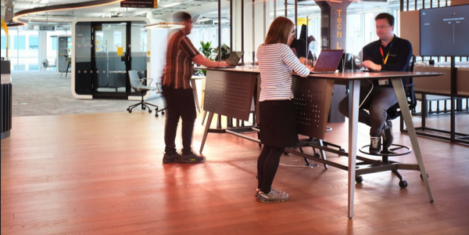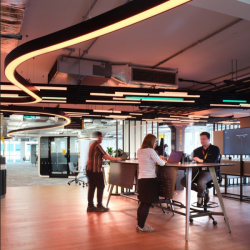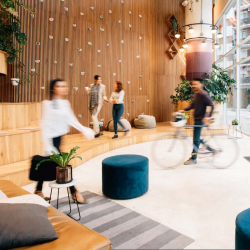To provide the best experiences, we use technologies like cookies to store and/or access device information. Consenting to these technologies will allow us to process data such as browsing behaviour or unique IDs on this site. Not consenting or withdrawing consent, may adversely affect certain features and functions.
The technical storage or access is strictly necessary for the legitimate purpose of enabling the use of a specific service explicitly requested by the subscriber or user, or for the sole purpose of carrying out the transmission of a communication over an electronic communications network.
The technical storage or access is necessary for the legitimate purpose of storing preferences that are not requested by the subscriber or user.
The technical storage or access that is used exclusively for statistical purposes.
The technical storage or access that is used exclusively for anonymous statistical purposes. Without a subpoena, voluntary compliance on the part of your Internet Service Provider, or additional records from a third party, information stored or retrieved for this purpose alone cannot usually be used to identify you.
The technical storage or access is required to create user profiles to send advertising, or to track the user on a website or across several websites for similar marketing purposes.
 The development of a major life science cluster at Canary Wharf continues to build momentum with a range of life sciences focused start-ups and scaleup businesses joining the growing community of technology businesses at its specialist co-working and office hub, Level39, according to a new statement from Canary Wharf Group. Launched by Canary Wharf Group ten years ago, Level 39 is now home to over 180 start-ups and scaleups innovating in FinTech, Cyber Security, CleanTech, Blockchain, Life Sciences and HealthTech. (more…)
The development of a major life science cluster at Canary Wharf continues to build momentum with a range of life sciences focused start-ups and scaleup businesses joining the growing community of technology businesses at its specialist co-working and office hub, Level39, according to a new statement from Canary Wharf Group. Launched by Canary Wharf Group ten years ago, Level 39 is now home to over 180 start-ups and scaleups innovating in FinTech, Cyber Security, CleanTech, Blockchain, Life Sciences and HealthTech. (more…)

































November 2, 2022
Who’s driving this bus, anyway? A critical review of Leading People in Change by Jennifer Bryan
by Neil Usher • Comment, Workplace